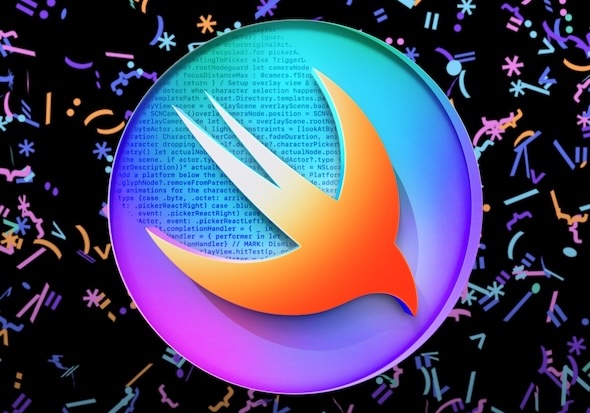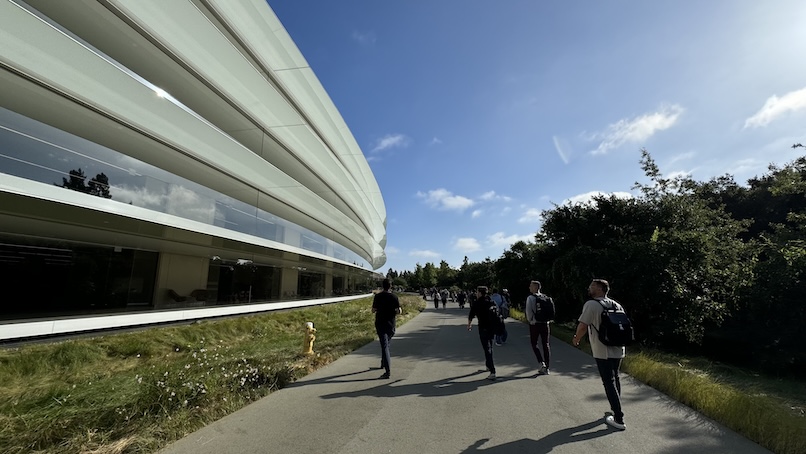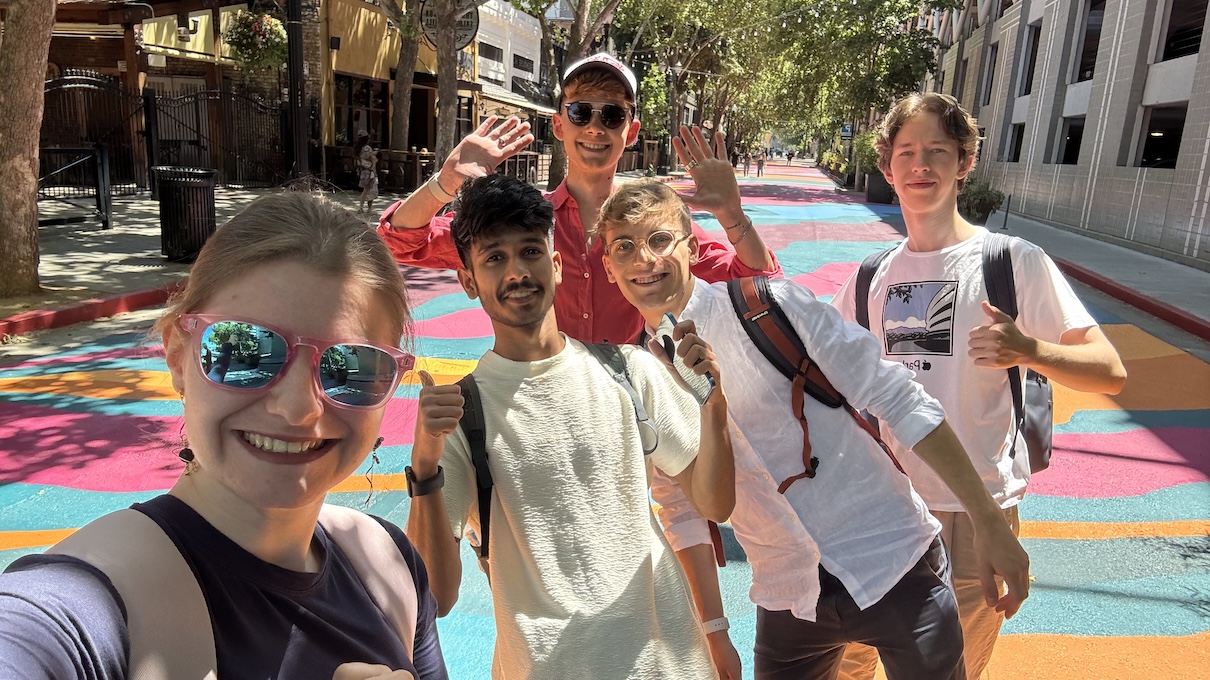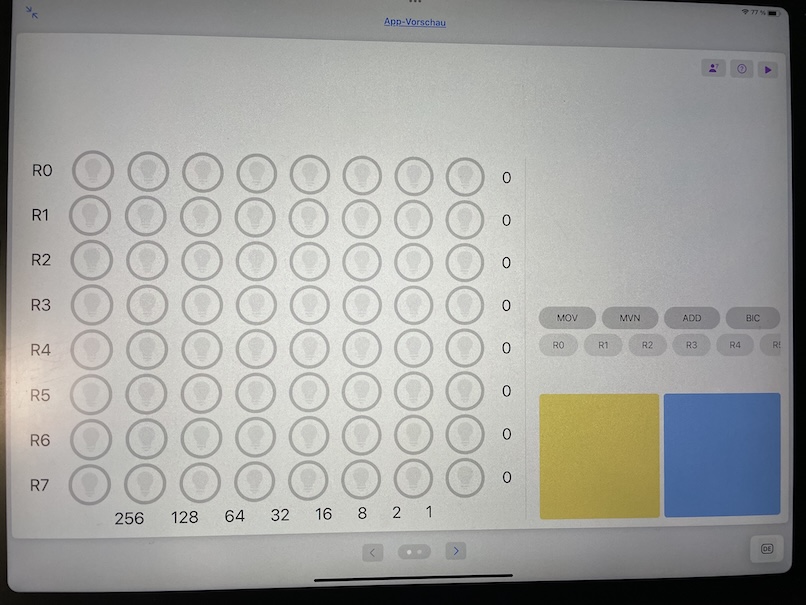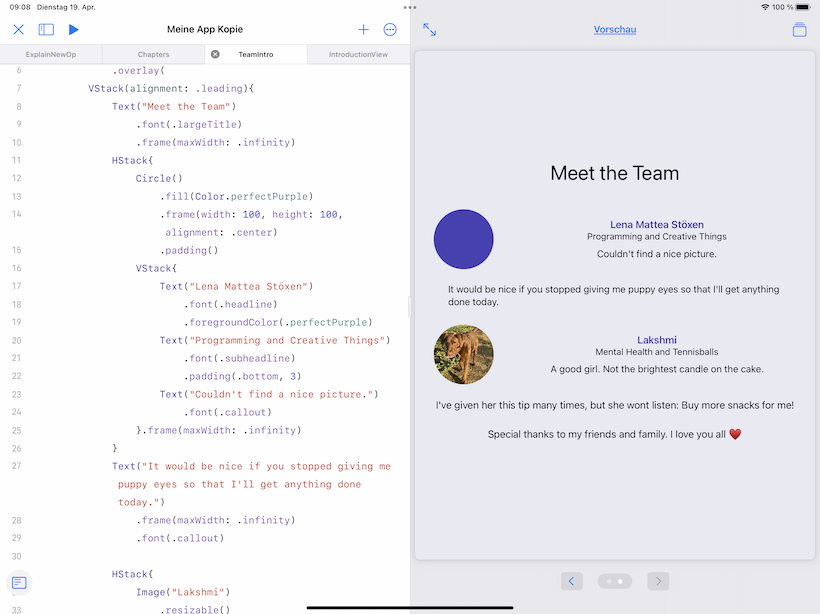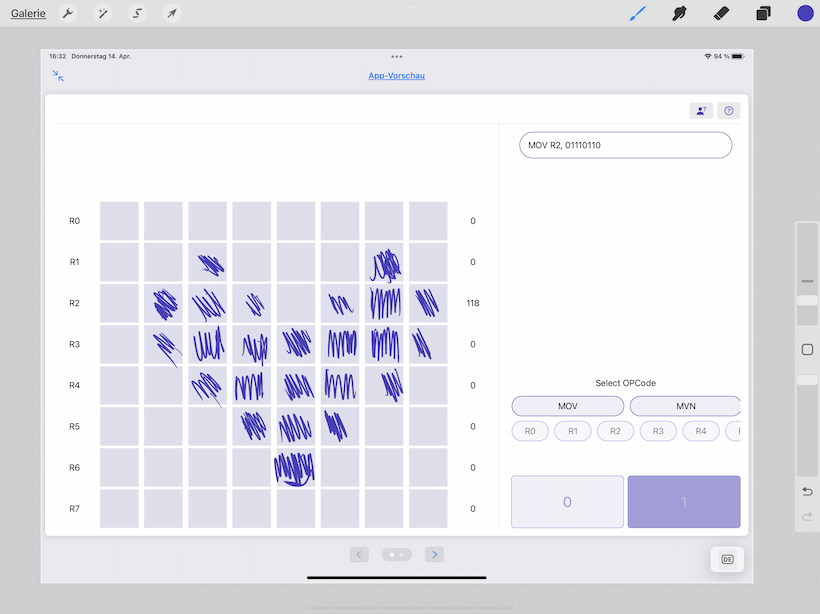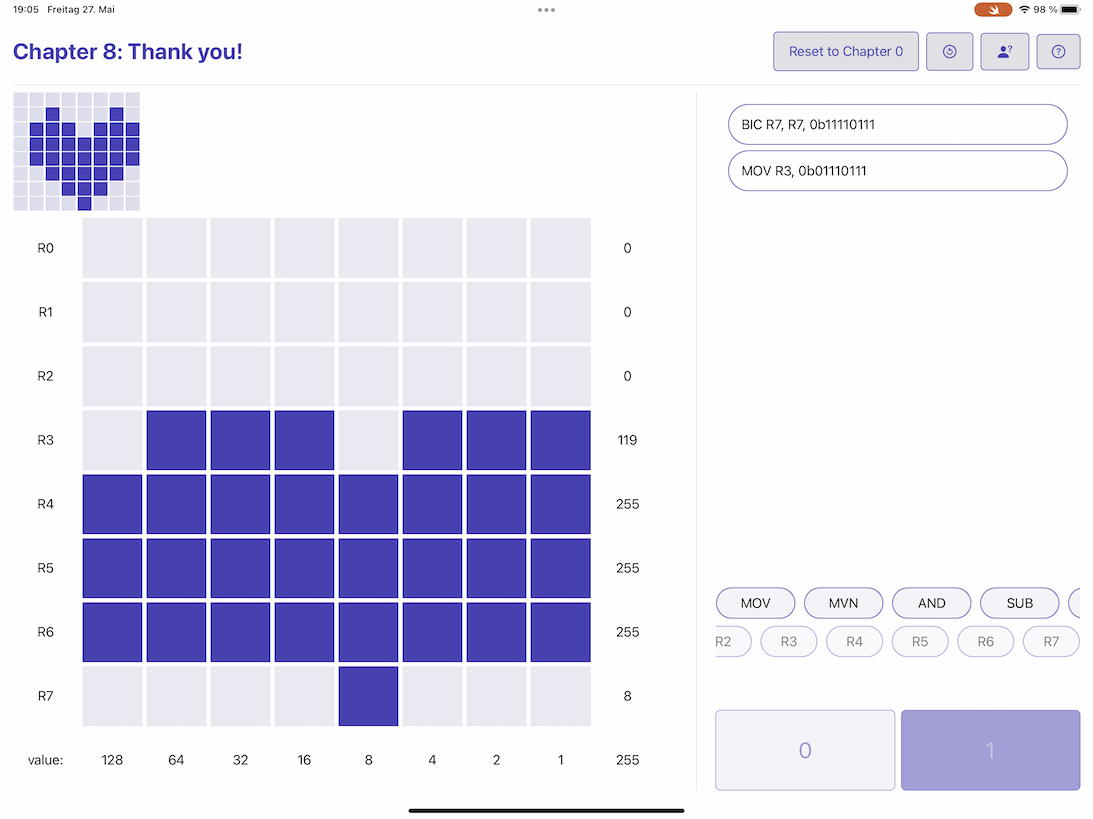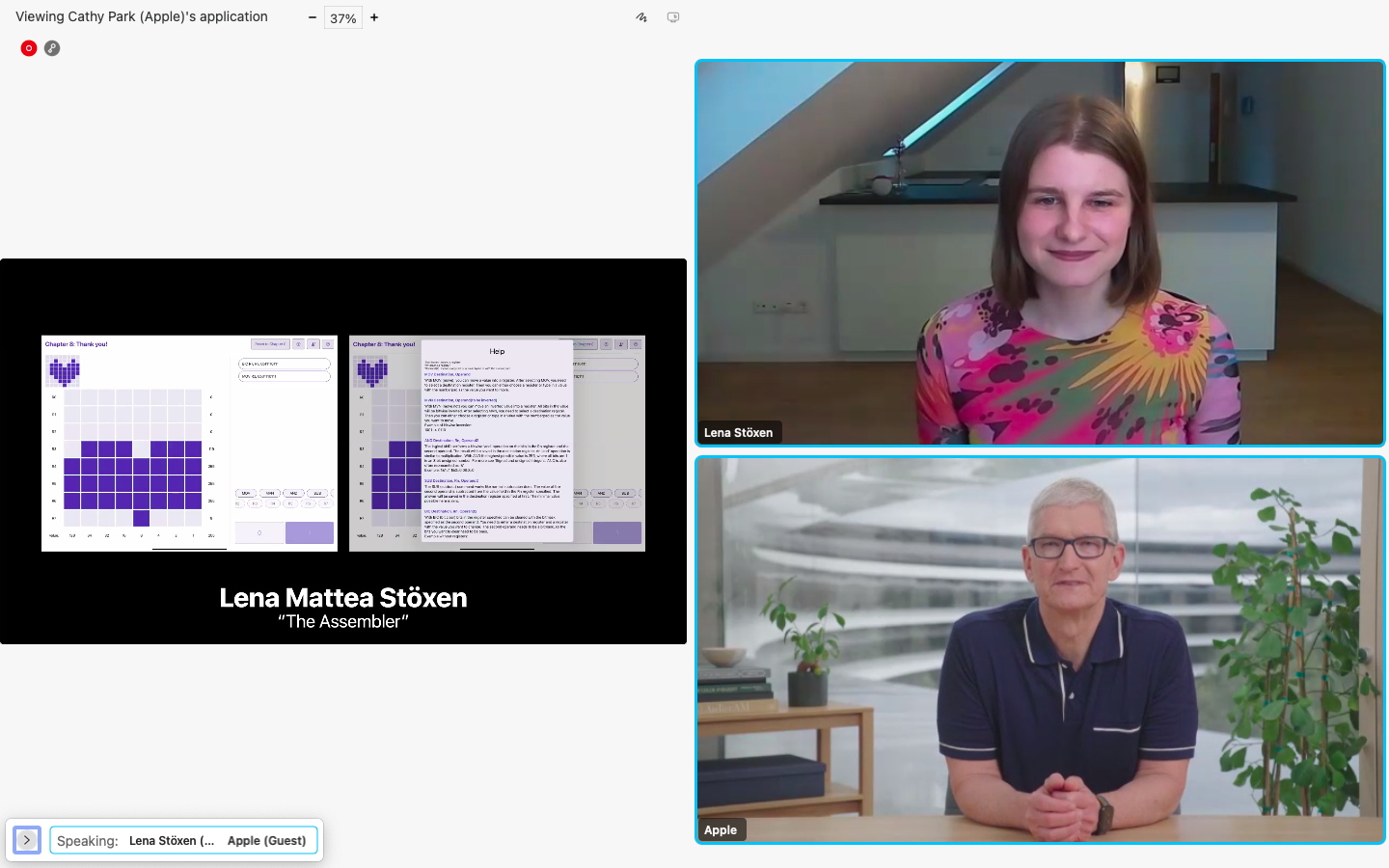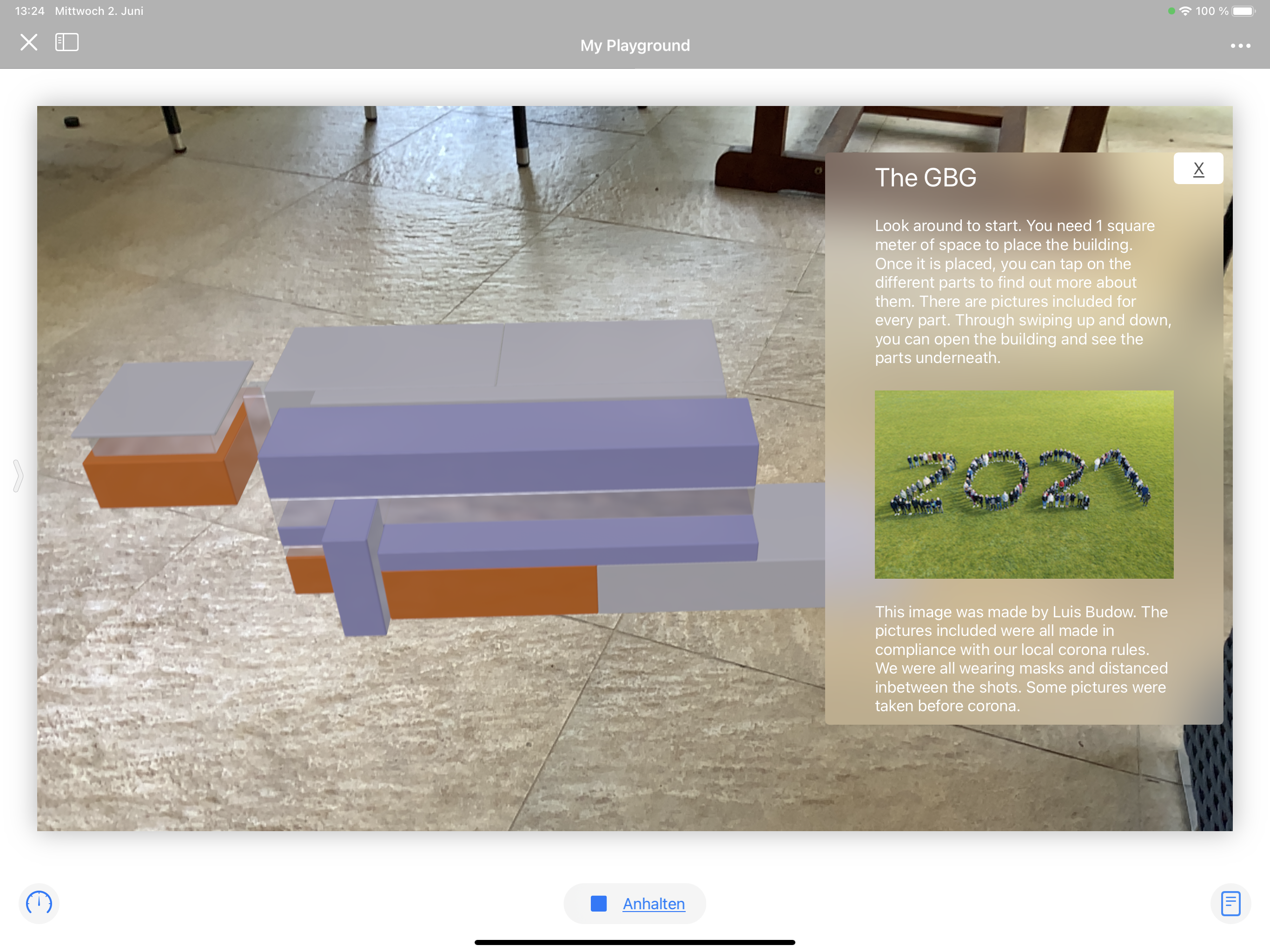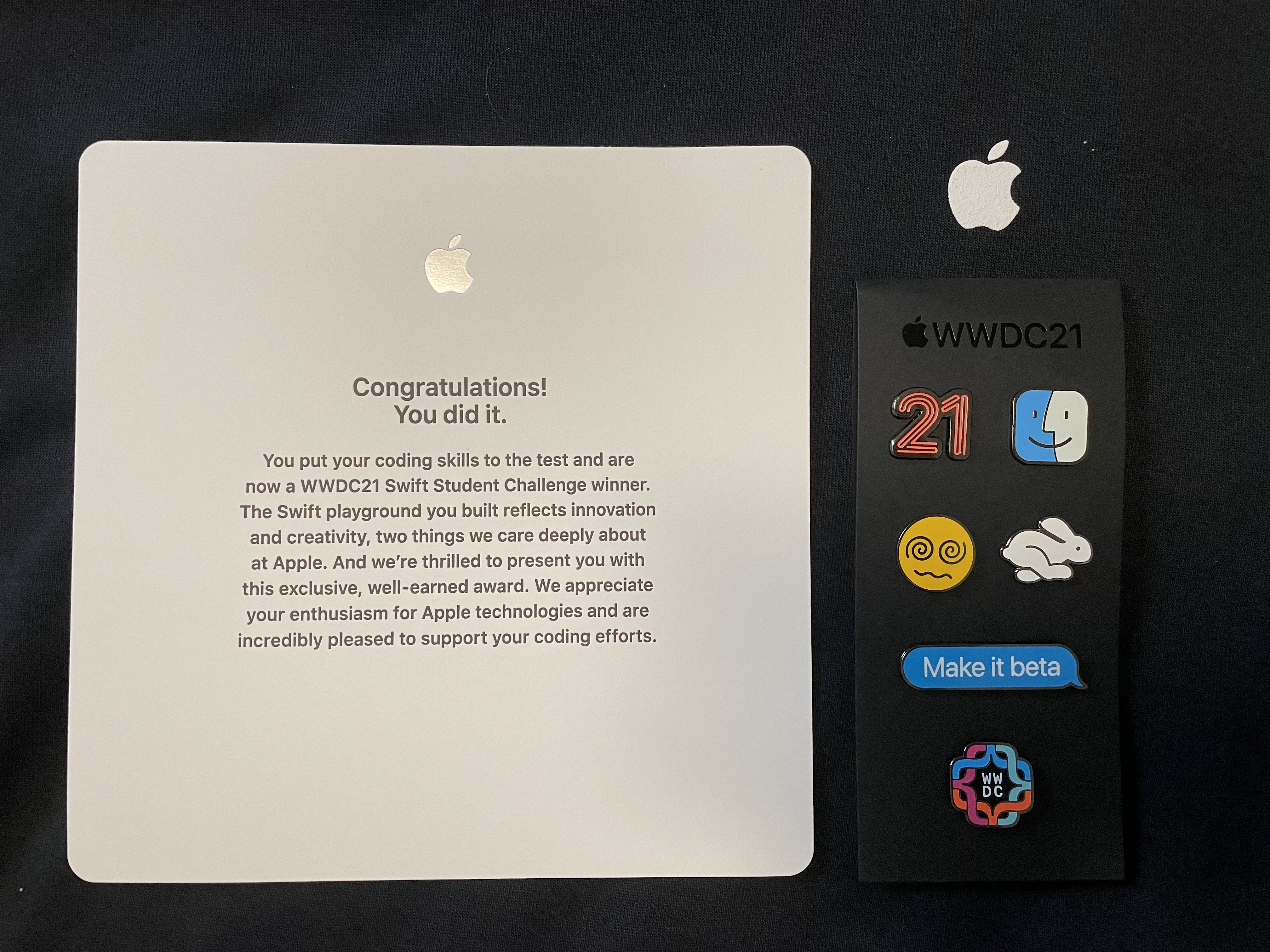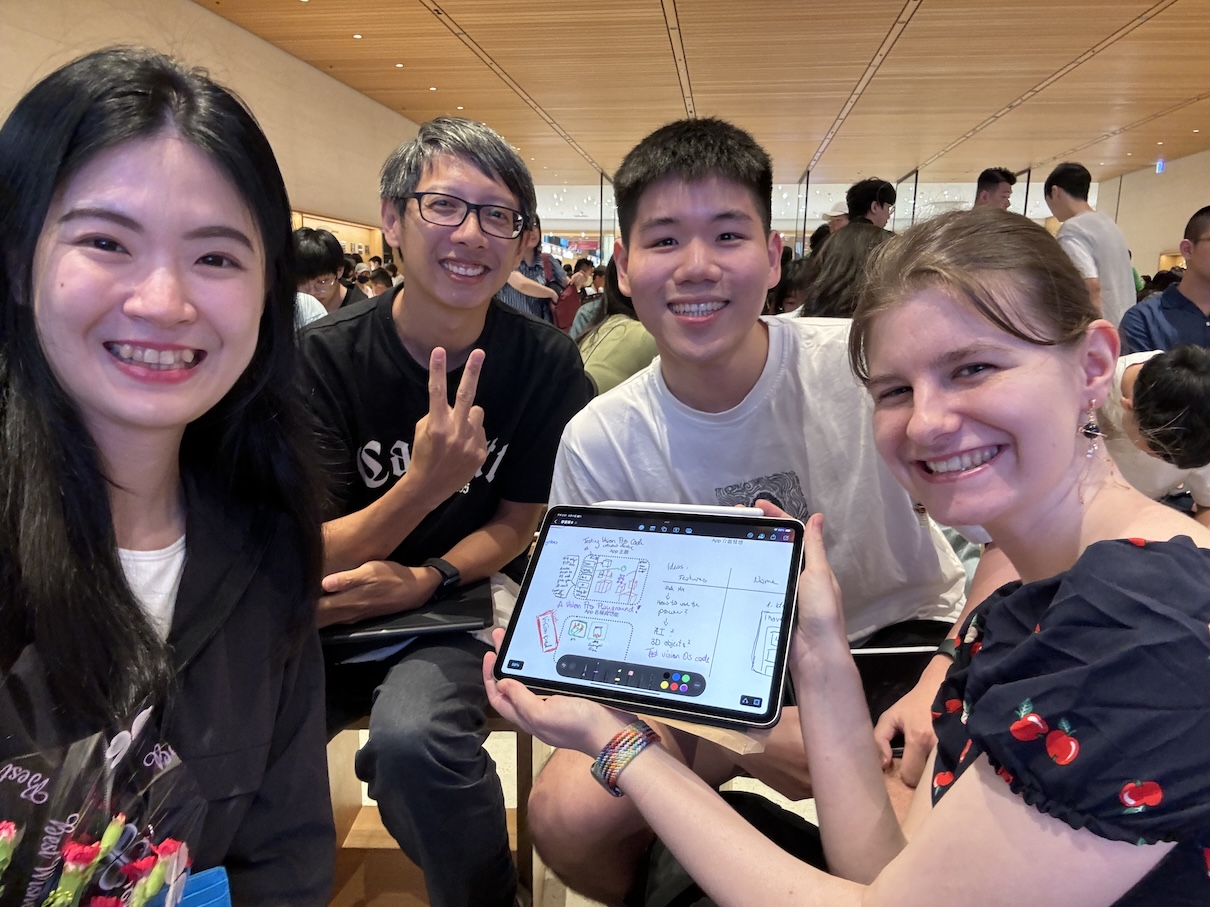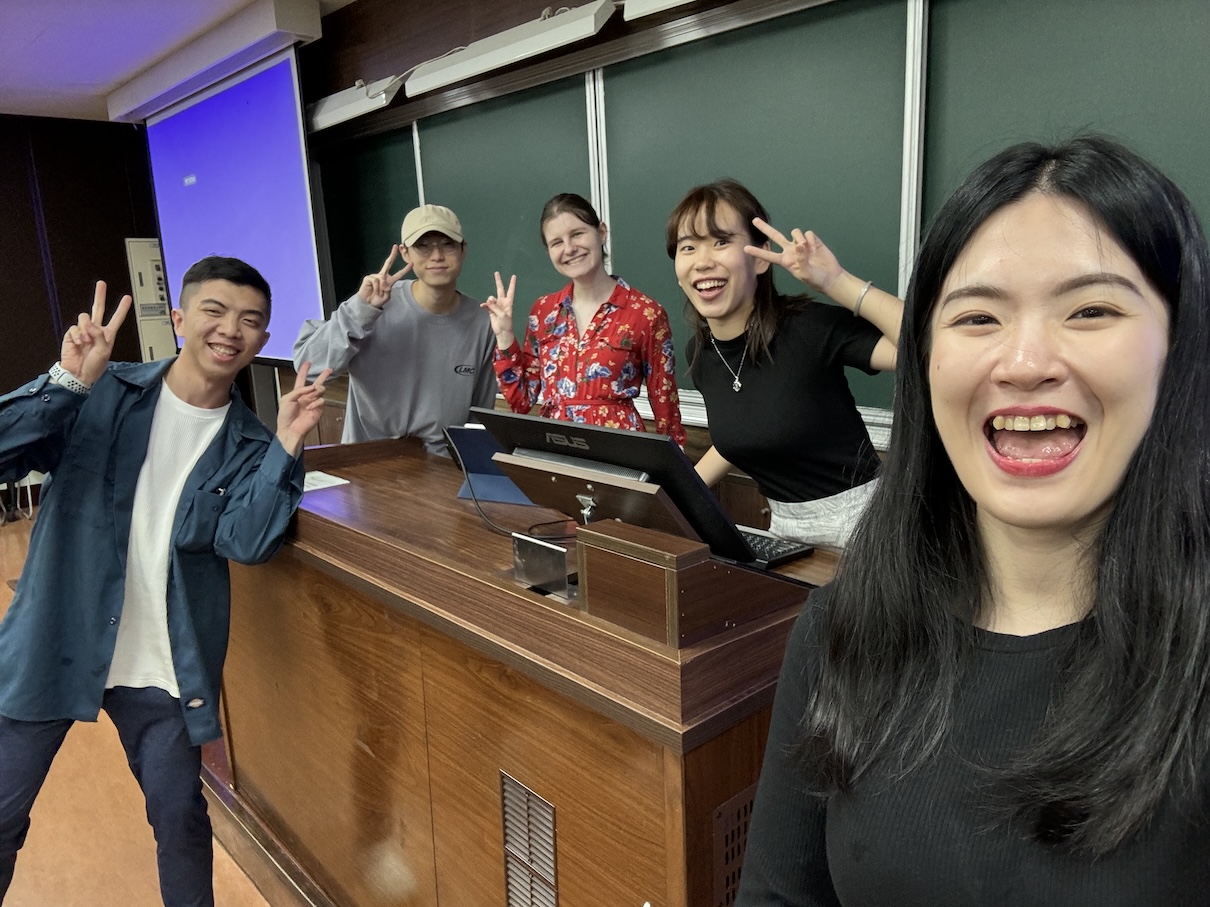The Swift Student Challenge
Whats the Swift Student Challenge?
If you're here, I am thinking you already know this. Every year, Apple hosts the Swift Student Challenge (formerly WWDC Scholarship). Every year, 350 projects are picked as winning projects. The Scholarship was renamed during/after covid, it used to be a guaranteed way of getting a DubDub (WWDC) ticket. Now (starting 2024) there are 300 winners and 50 distinguished winners. The distinguished winners get invited to Cupertino for three days. If you win in the Swift Student Challenge, you also have a chance at winning a WWDC ticket in the regular ticket lottery.
The rules are quite simple, but for a more detailed version definitely check them out on Apples website, this is just a quick collection
- You have to be a student enrolled or recently enrolled in an educational institution and not work full-time as a developer (You could be part of the Apple Developer Academy for instance)
- The project has to be either for Mac or iPad (iOS, but I've heard rumours that only iPad/Mac is used to test your project) and be built using Swift Playgrounds Apps
- The project has to be experienceable in 3 minutes
- You can win up to 4 times in total
Personal Experience with the Challenge
Personally, I've had quite a good experience with the Swift Student Challenge. I've participated 6 times going on 7 (2019, 2020, 2021, 2022, 2023, 2024 and currently in 2025). In 2021, 2022 and 2024 I've been lucky enough to have one of my projects be selected as a winner. Last year (2024), I've also won a ticket to WWDC.
WWDC is a great experience that I can't really describe at all. It's so great meeting so many other talented developers and awesome people. I've met a lot of people that I knew already online. The California sun is great and the community arounds that happen around WWDC make it so much more vibrant. Really; I am missing the adjectives to accurately put this into words.
The Swift Student Challenge was also why I started programming in 2018:
Back then I was living abroad. When you live abroad, the first couple of weeks everything is new, different and great, you're at an emotional top of the world. But then you sort of start to realise that the new place is like the old, maybe you'll feel homesick or lonely because finding friends can be easy at first, but keeping them is a whole different story. Whilst in the beginning everyone finds you interesting, it is difficult to make the new friendships last.
So I was in that phase of feeling super lonely and I've read online about someone who went to WWDC. He talked about how great it is and how he loved the experience. He also talked a lot about all of the friends he's made there. I thought 'I want that too', so I read up on the WWDC Scholarship (how he got to WWDC) and back then it said something like 'just create a project in Swift'. Now I couldn't program back then. I had tried it with building robots in school, but I didn't enjoy that and then concluded that I don't like programming at all. But now I was sitting on my bed, reading about the WWDC Scholarship and the Swift Community. And I thought 'I want this too' and 'how difficult can programming really be?!'. I got some Swift books ('Everyone can code, because they were available in German) about an hour later and started teaching programming to myself. That was in November 2018. I've had phases where I programmed less since then, but I've been building apps basically since then.
Do you want to know who I also told that story to? Tim Cook. Every year some 10-ish winners get to present their projects to Tim Cook. I was fortunate enough to do that with my Assembly Project from 2022. And in that thing you are supposed to tell some things about you, why did you start programming, how did you get here, what's your project and so on. So I told a shortened version of that story.
Personal tips I'd give to people who want to participate
Take all of these as my personal feelings and opinions, obviously I can only form these by my experiences as a participant.
- Be creative (know this is a generic one) but here are some of my thoughts about what I mean with that:
- At Try! Swift Tokio I saw a talk about how you could use SFSymbols to make other images, simply by combining simpler ones and painting with them. This was something I've never thought about before. In 2022 I saw a project from a woman that was about guessing film titles that were described with emojis. I've read about a project that used facial movements to paint on a canvas. Your Idea doesn't have to be unique (in 2022, at least two assembly projects won) it can hardly be, with the number of people participating, but try to maybe add something unexpected, add a twist to an idea that already exists.
- Limit yourself & Stay focused This is not actually about making a full app. It's more about proving a cool concept. Make sure that you have the basic features working really well, instead of having a lot of features that don't really work. I don't think the people that judge the projects have a lot of time to do so (maybe 5 mins per full project). There are likely many submissions and they have a 'real' job too. So I think it's important that the main idea becomes clear quickly. (Let's say there are 3.000 participants, (I read somewhere that the actual number is closer to 30.000, but I can't remember where and also that was probably back in 2019), and each project takes 5 minutes to review the text and the project itself, which is not a lot of time. Then we'd have 15.000 minutes = 250h of projects.)
- If you have an idea, stay focused on showing that idea, and not bloat the project with another 25 stories and features that don't support the main idea.
- In 2023 I made a journaling app where I had trouble limiting myself. Pretty quickly I was experiencing feature bloat where the app got more and more features, and with each feature I buried the main idea I wanted to show. Every added functionality would also mean that I had to split my time between working on each of them, leading to none of them really working. The project could have been good, if I had been able to chop away the unnecessary and focus on my main idea.
- Remember that you can add more animations or ornaments once you've finished the main functionality. I've seen people make really great projects in a couple of days (for instance Henri's). Personally, I always need longer than I thought I would. I try to start with the main function, and then add a nice UI later. Often I start by adapting a sample project, or just using the most basic UI for a long time, and only adding a nicer UI later when the app already works.
- Try to use a new framework of feature This is only a recommendation. You don't have to do this. Basically because the challenge time is so limited, I tried to get into a new framework that sounded cool. When I am brainstorming for an idea on what to make, I usually list frameworks that I like or want to use, as well as things I am thinking about.
- For instance my 2021 project: I love Augmented Reality (AR) so I wanted to get try it more and see what I can create with it. In 2021 I graduated from high school; that's 9 years of my live. We all had so different plans for the future, I was scared about loosing friends and was just feeling a general nostalgia. So I thought about the nostalgia part. I wanted to make a yearbook to commemorate the things and people around me, and share it with other people. Now how do you combine AR and a yearbook? I built a 3D Model of the school (programmatically in RealityKit) and then annotated each part of the building with stories from my time there. The idea wasn't strictly mine. At Apples Visitor Center in Cupertino, you can see a model of their Apple Park Campus. They hand out iPads and you can use AR to see the campus and open up their buildings. So that's what I did in my project as well.
- Prototype the idea You can still change the idea in the beginning, but it gets more difficult the more you build. For this one you might be able to get help from friends and family. Personally, I like to sketch my idea and then show it to some people and ask them how they feel about it. They often have valuable feedback that's not entrenched in 'but in my head this works'. My 2022 Assembly project was originally only about building robots with Assembly. But as I was talking to others, I realised that that's not what I want. The original idea was too overloaded, building the robot was not adding something substantial, it was only adding complexity. So I changed away from that and decided I want to show the registers as lightbulbs (in school I've always been told that binary is like a light bulb, on or off), but then realised that the lights didn't add understanding or playfulness. But as I was working with the lights idea, I realised that I could program patterns with the lights, so I decided 'oh wait that's like pixel art!' And thats where I took the project in the end.
- Don't give up I feel that this is important. I've participated 6 times, and won 3 of them. The first time I participated I didn't win and I was really disheartened by that. Back then, I considered quitting the whole programming thing (I had other reasons too), but ultimately I stayed with it, because I like creating something with code. Programming can be fun and rewarding without winning something. And if you are thinking of applying (or applying again):
- Apply! Just go for it really. You only have things to gain. You'll have a cool project at the end and you'll most likely have learned a lot. Maybe you've learned about a cool new technology, or you gained a deeper understanding of one you already knew. If you post about it online, you might gain some friends! When I was at DubDub, I shared an AirBnB with some friends I made through the Student Challenge online.
- Have Fun!
If you need Resources to feel inspired or to learn about other projects:
- There are multiple websites weher winners show off their projects (I've linked two projects I love, but there are many more that are awesome, I can't link everyone so I selected some)
- Some winners also open source their projects to GitHub
- All of these are voluntary, so you might not find all winners/projects there (only one of my projects is there, because I didn't feel like publishing the rest, it's also missing one from a friend of mine, which I thought was absolutely stunning, it was explaining quantum entanglement)
